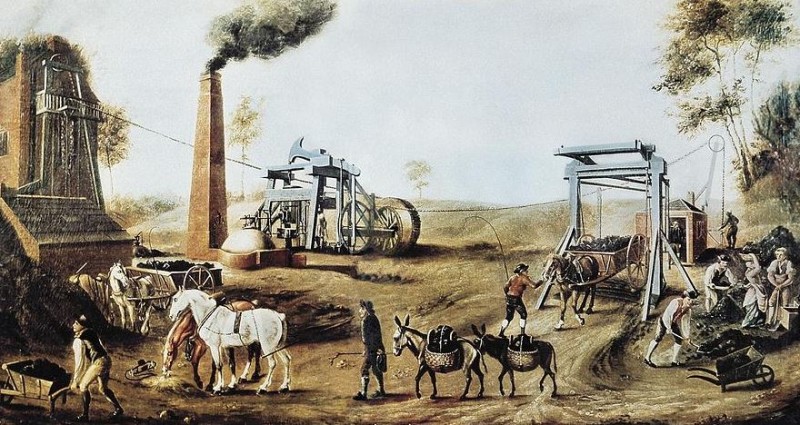
Introduction
The Industrial Revolution, which occurred in the 18th and 19th centuries, was a significant turning point in human history. It marked a period of profound transformation as societies embraced technological advancements and experienced unprecedented economic, social, and cultural changes. This article explores the key aspects of the Industrial Revolution, its impact on various sectors, and how it shaped the world we live in today.
1. The Origins of the Industrial Revolution
The Industrial Revolution originated in Great Britain in the mid-18th century and gradually spread to other parts of Europe and North America. It was fueled by several factors, including the availability of natural resources, a stable political climate, a skilled workforce, and a culture of innovation.
2. The Revolution in Manufacturing and Textiles
One of the defining features of the Industrial Revolution was the revolution in manufacturing processes. Traditional cottage industries gave way to large-scale factories, powered by machinery and driven by steam engines. The textile industry, in particular, witnessed significant advancements with the invention of the spinning jenny, water frame, and power loom.
3. The Steam Engine and Transportation Revolution
The development of the steam engine by James Watt revolutionized transportation and played a crucial role in the Industrial Revolution. Steam-powered locomotives and steamships made transportation faster, more efficient, and more accessible, facilitating the movement of goods and people over long distances.
4. Urbanization and the Rise of Cities
As industries flourished, there was a massive shift in population from rural areas to cities. Urbanization became a prominent feature of the Industrial Revolution, leading to the rapid growth of cities and the emergence of crowded industrial centers. This migration of people seeking employment opportunities and better lives resulted in the formation of urban slums and led to significant social challenges.
5. Effects on Agriculture and Rural Life
The Industrial Revolution brought substantial changes to agriculture and rural life. Advancements in farming techniques, such as the seed drill and mechanized reapers, increased agricultural productivity. However, many rural workers lost their livelihoods as large landowners consolidated their holdings and embraced new farming methods.
6. Social Changes and Working Conditions
The Industrial Revolution had a profound impact on society and working conditions. The factory system introduced a new division of labor and transformed the relationship between employers and workers. Long working hours, low wages, and unsafe working conditions were prevalent, leading to protests and the rise of labor movements seeking better rights and conditions for workers.
7. Impact on Women and Children
Women and children played a crucial role in the workforce during the Industrial Revolution. They were employed in factories, mines, and textile mills, often working in hazardous conditions for extended hours. The exploitation of women and child labor became a social issue, eventually leading to reforms and legislation to protect their rights.
8. The Spread of Industrialization Across the Globe
The Industrial Revolution started in Britain but gradually spread to other parts of the world, including Europe, North America, and later, Asia. Each region adapted industrialization to suit its specific circumstances, leading to diverse patterns of development and varying social and economic impacts.
9. Technological Innovations and Inventions
The Industrial Revolution was marked by a wave of technological innovations and inventions that transformed industries and everyday life. Notable inventions include the spinning mule, power loom, telegraph, steam-powered printing press, and the electric telegraph. These innovations propelled progress and laid the foundation for future advancements.
10. Environmental Consequences and Sustainability
While the Industrial Revolution brought unprecedented progress, it also had adverse environmental consequences. Increased pollution, deforestation, and the depletion of natural resources were significant challenges. The concept of sustainability and the need for environmental stewardship gained recognition in response to these issues.
11. Economic Transformations and Capitalism
The Industrial Revolution gave rise to a new economic system based on capitalism. Entrepreneurs and industrialists accumulated vast wealth, and the pursuit of profit became a driving force. Capitalism fueled economic growth, but it also created stark social inequalities and class divisions.
12. The Industrial Revolution and Global Trade
Industrialization fueled the growth of global trade networks. The expansion of railways, steamships, and telegraph lines facilitated the exchange of goods, information, and ideas across continents. International trade became more interconnected, leading to the globalization of economies and the emergence of a global marketplace.
13. Cultural and Artistic Responses to Industrialization
The profound changes brought about by the Industrial Revolution also influenced culture and the arts. Artists and writers depicted the impact of industrialization on society, exploring themes of alienation, urbanization, and social injustice. Movements like Romanticism and Realism emerged as reactions to the rapid changes of the era.
14. Political Reforms and Social Movements
The Industrial Revolution sparked political reforms and the rise of social movements. Workers' rights, suffrage, and improved living conditions became central concerns. Reforms such as the Factory Acts and the rise of trade unions aimed to address the social and economic challenges arising from industrialization.
15. Legacy and Lessons from the Industrial Revolution
The legacy of the Industrial Revolution is evident in the world we live in today. It shaped modern societies, economies, and technological advancements. Lessons learned from this era continue to influence debates on economic systems, labor rights, environmental sustainability, and the balance between progress and social welfare.
Conclusion
The Industrial Revolution was a transformative period in human history, characterized by technological advancements, social changes, and economic growth. It laid the foundation for the modern world, but it also presented significant challenges and inequalities. Understanding the complexities and consequences of this era helps us navigate the present and shape a sustainable future.
Bengal Panchayat Poll Results: TMC Bags Over 34,000 Gram Panchayat Seats
Supreme Court Declines Urgent Plea, Summons Makers of 'Adipurush' in Intensifying Legal Battle
ISRO to launch Chandrayaan-3 on Friday, Know All about the mission